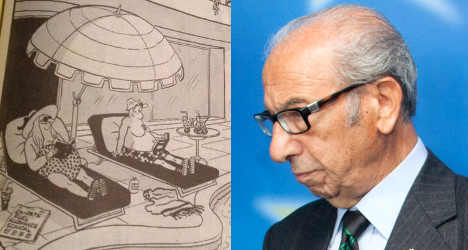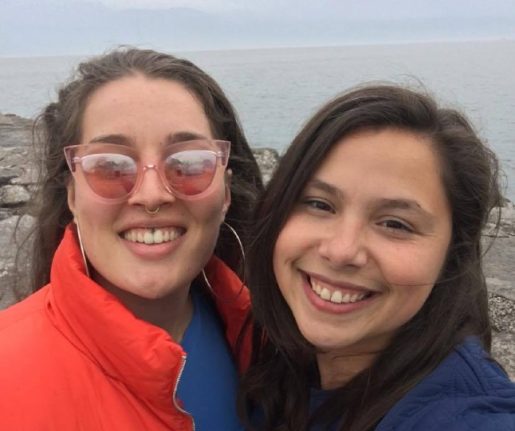A long-running controversy over the winter fuel allowance provided by the British government to expats has reached something of a fever pitch.
Many British citizens living in Italy and indeed elsewhere in Europe were already furious with UK Pensions Secretary Ian Duncan-Smith’s recently-announced plan to cut payments to pensioners living abroad.
Then earlier this month, the Daily Mail published this cartoon mocking the lifestyle of British expats living in France and Spain, suggesting they spend all their time topping up the tan and filling up the wine glass.
"Oh goody! Here comes our winter fuel." Photo: Screenshot/@xxtigger_ukxx
Shindler, who has lived in Italy for nearly 30 years, responded with an open letter to the newspaper requesting it apologize.
“It is of course offensive to all those British citizens who live normal, decent lives in the country in which they have chosen to live – encouraged to freely move in the new united Europe.
“Your cartoonist Mac insults them all,” he wrote.
The pensioner’s response to the Daily Mail comes as snow sweeps across Italy, suggesting that the newspaper’s view that expats have no need for a winter fuel allowance is unfounded.
Shindler was in Rome to see the city liberated during World War II and said that many other fellow expats had risked their lives for the UK.
“Many of them are ex-servicemen…who fought a war for liberty and freedom.
“We won that war, so now Mac has the freedom to insult more than one million British citizens who reside in Europe but not in the UK,” Shindler wrote.
Rather than abandoning their country, expats in Italy and elsewhere help “keep Britain a leading nation in the world”.
“These British citizens are the country's ambassadors and daily protect the image of the mother country,” Shindler said.
Although the pensioner has lived in Italy for a number of years, he has kept strong ties to the country and is currently fighting to keep his right to vote in the UK. British law currently sees expats lose their right to vote after 15 years abroad, a law Shindler is hoping to change.
READ MORE: 'We will win like the Suffragettes'
Don't miss a story about Italy – Join us on Facebook and Twitter.





 Please whitelist us to continue reading.
Please whitelist us to continue reading.
Member comments